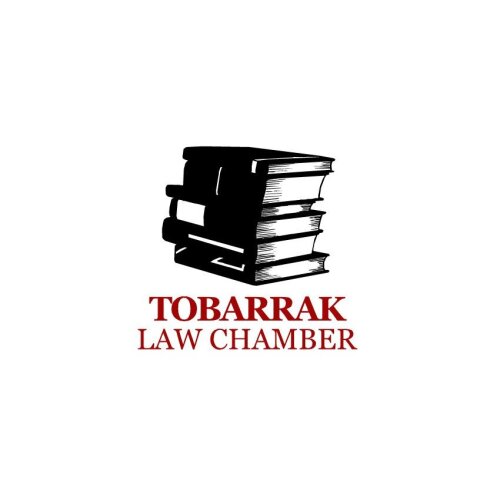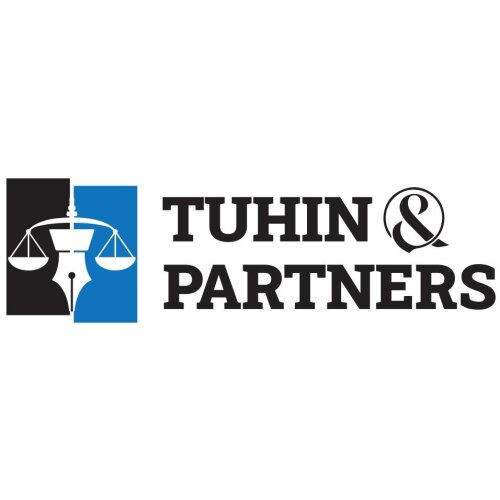Best E-commerce & Internet Law Lawyers in Dhaka
Share your needs with us, get contacted by law firms.
Free. Takes 2 min.
List of the best lawyers in Dhaka, Bangladesh
About E-commerce & Internet Law in Dhaka, Bangladesh
E-commerce and Internet law in Dhaka, Bangladesh encompasses the legal regulations and guidelines governing online business activities and internet usage. Due to the rapid growth of online businesses, the legal framework in this area is continuously developing. This area of law includes issues related to online contracts, intellectual property, privacy, cybersecurity, consumer protection, and digital transactions. In Dhaka, both local statutory laws and international standards influence the legal landscape, aiming to balance innovation with consumer safety and business integrity.
Why You May Need a Lawyer
There are several common situations where individuals or businesses might require legal help in E-commerce and Internet law:
- Contract Disputes: When disagreements arise regarding terms of service, refund policies, or breach of contract.
- Intellectual Property: Issues like copyright infringement, trademark violations, or patent disputes involving digital products or services.
- Consumer Complaints: Handling disputes related to product delivery failures, product misrepresentation, and refund issues.
- Cybersecurity Breaches: Addressing unauthorized access, data breaches, or other security issues affecting e-commerce platforms.
- Regulatory Compliance: Ensuring compliance with local and international internet regulations and data protection laws.
- Privacy Issues: Navigating legal obligations concerning the collection, use, and protection of consumer data.
Local Laws Overview
Several key aspects define the legal landscape of e-commerce and internet law in Dhaka, Bangladesh:
- Information and Communication Technology (ICT) Act: This act provides the legal framework for online transactions and digital communications, addressing issues like digital signatures and electronic documents.
- Digital Security Act: This act focuses on preventing cybercrimes and ensuring the safety of digital communications, tackling areas such as hacking and unauthorized data access.
- Copyright Act: Protects the intellectual property rights of individuals and organizations, ensuring creators can maintain control over their digital content.
- Consumer Rights Protection Act: Aims to safeguard consumers in e-commerce dealings, focusing on fair pricing, accurate advertising, and the prevention of fraudulent activities.
Frequently Asked Questions
What is the role of digital signatures in Bangladesh's e-commerce transactions?
Digital signatures are recognized under the ICT Act to authenticate the identity of the parties involved in electronic transactions, ensuring security and integrity.
How does the Digital Security Act affect e-commerce businesses?
The Digital Security Act imposes obligations on e-commerce businesses to protect consumer data, ensure network security, and prevent cybercrimes.
Can consumers claim a refund for faulty products bought online?
Yes, under the Consumer Rights Protection Act, consumers are entitled to refunds or exchanges for defective or misrepresented goods.
What should a business do if it suspects a data breach?
Businesses should immediately report the breach to relevant authorities, notify affected consumers, and take corrective measures to prevent future incidents.
Are online businesses required to pay taxes in Bangladesh?
Yes, e-commerce businesses must comply with the applicable taxation laws of Bangladesh, which may include VAT and income tax.
Do international e-commerce laws apply to businesses in Bangladesh?
While local laws are primary, international e-commerce standards influence legal practices, especially in cross-border transactions.
What recourse do consumers have if an e-commerce platform violates their privacy?
Consumers can file complaints with relevant consumer protection agencies or seek redress under the Digital Security Act if their privacy is breached.
How are trademark violations handled in e-commerce?
Trademark disputes can be resolved through the legal provisions in the Trademark Act, which protect brand identity and prevent unauthorized use.
What is the importance of terms of service agreements?
Terms of service agreements govern the relationship between the user and the platform, outlining rights, responsibilities, and dispute resolution processes.
Can businesses be penalized for not adhering to e-commerce regulations?
Yes, businesses that fail to comply with legal standards may face fines, sanctions, or legal actions, depending on the severity of the violation.
Additional Resources
Here are some resources and organizations that can assist individuals seeking legal advice in e-commerce and internet law:
- Bangladesh Telecommunication Regulatory Commission (BTRC): Regulates the telecommunications sector and provides guidance on digital communications.
- ICT Division, Government of Bangladesh: Offers information and updates on information technology policies and initiatives.
- Department of National Consumer Rights Protection: Provides support for consumer rights issues and disputes in e-commerce.
- Bangladesh Association of Software and Information Services (BASIS): Offers resources and support for IT and software companies, including legal advice on internet law.
Next Steps
If you require legal assistance in the field of e-commerce and internet law, consider the following steps:
- Consult a Legal Expert: Reach out to a lawyer specializing in e-commerce and internet law to understand your rights and obligations.
- Document Your Issues: Keep thorough records of any disputes or legal issues, including emails, contracts, and transaction details.
- Review Regulatory Guidelines: Familiarize yourself with the relevant laws and regulations affecting your situation to be better prepared for legal discussions.
- Identify Trusted Resources: Use the resources and organizations listed above to gain additional support and insight.
- Engage in Mediation: Consider mediation as a cost-effective and less adversarial way to resolve legal disputes if appropriate.
Lawzana helps you find the best lawyers and law firms in Dhaka through a curated and pre-screened list of qualified legal professionals. Our platform offers rankings and detailed profiles of attorneys and law firms, allowing you to compare based on practice areas, including E-commerce & Internet Law, experience, and client feedback.
Each profile includes a description of the firm's areas of practice, client reviews, team members and partners, year of establishment, spoken languages, office locations, contact information, social media presence, and any published articles or resources. Most firms on our platform speak English and are experienced in both local and international legal matters.
Get a quote from top-rated law firms in Dhaka, Bangladesh — quickly, securely, and without unnecessary hassle.
Disclaimer:
The information provided on this page is for general informational purposes only and does not constitute legal advice. While we strive to ensure the accuracy and relevance of the content, legal information may change over time, and interpretations of the law can vary. You should always consult with a qualified legal professional for advice specific to your situation.
We disclaim all liability for actions taken or not taken based on the content of this page. If you believe any information is incorrect or outdated, please contact us, and we will review and update it where appropriate.










